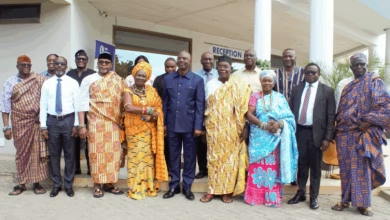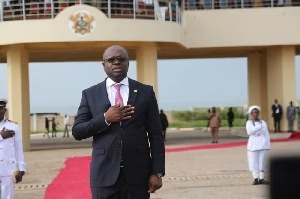“Government Advised to Collaborate with All Teacher Unions on Free SHS Bill – King Ali”

- Teachers urge government to consult on free SHS bill.
- GNAT suggests funding Act instead of free SHS bill.
- Majority Leader pushes for free SHS bill despite opposition.
- Government's education commitment questioned over unpaid debts.
The President of the Coalition of Concerned Teachers, King Ali Awudu, has urged the government to engage with stakeholders on the free senior high school policy bill. He emphasizes the importance of consulting teacher unions and other key stakeholders on this significant legislation.
King Ali notes that the 1992 Constitution already provides for free basic education, making the free SHS policy a fulfillment of a constitutional requirement. He suggests that the government should build on this foundation and involve stakeholders in shaping the policy.
Thomas Musah Tanko, General Secretary of the Ghana National Association of Teachers (GNAT), agrees with King Ali’s call for stakeholder engagement. He proposes that the government consider introducing a funding Act instead of the free SHS bill to address the financial sustainability of the policy.
Tanko highlights the challenges facing the education sector, including capitation grant issues and the need for a dedicated funding source for pre-tertiary education. He suggests that the government should prioritize addressing these challenges.
Majority Leader Alexander Afenyo-Markin has declared that the Majority caucus will push through the Free SHS bill despite opposition from the Minority. He emphasizes that the policy is non-negotiable and will be binding on successive governments.
Afenyo-Markin criticizes the NDC for opposing the bill without reviewing it, comparing their stance to their initial resistance to the Free SHS policy and other social interventions. He asserts that the government will “force” the policy on the NDC and its parliamentarians.
Despite initial resistance, the NDC and Minority have announced their support for the bill and intention to push for a dedicated funding source in the proposed legislation. However, the Ranking Member on Parliament’s Education Committee, Nortsue-Kotoe, has dismissed the government’s claims of prioritizing education.
Nortsue-Kotoe highlights significant debts owed to suppliers of educational logistics, including school uniforms, textbooks, and furniture. He questions the government’s commitment to education, given these outstanding debts.
The government’s failure to pay suppliers of food items for two years further undermines its claims, according to Nortsue-Kotoe. He emphasizes the need for genuine commitment to education rather than political posturing.
The debate highlights the need for stakeholder engagement, sustainable funding, and genuine commitment to education. As the government pushes forward with the Free SHS bill, it remains to be seen how these concerns will be addressed.






